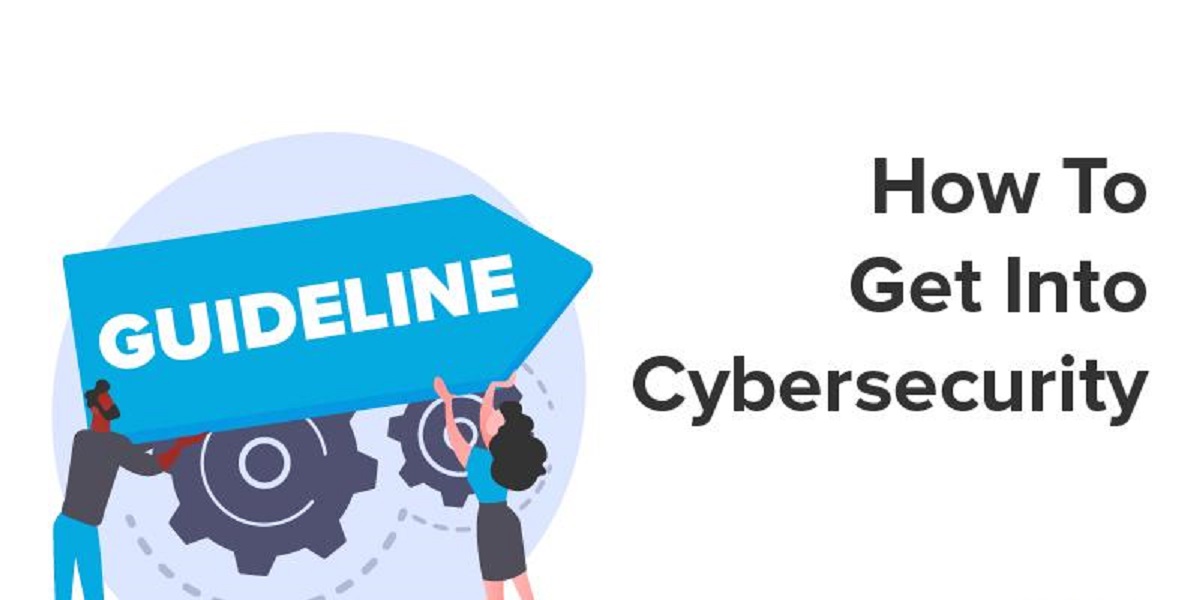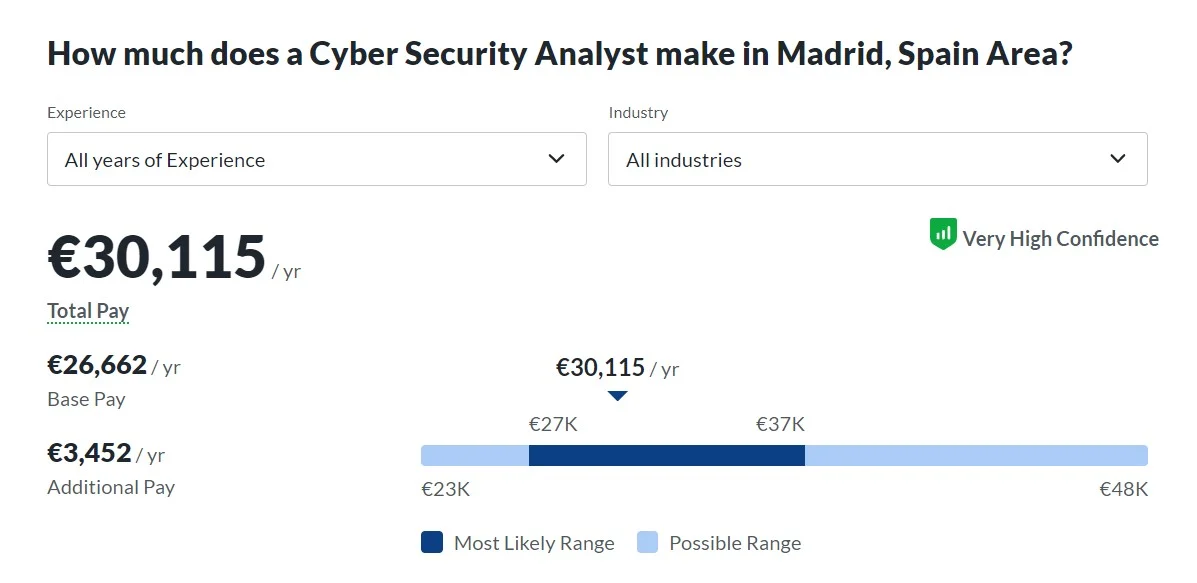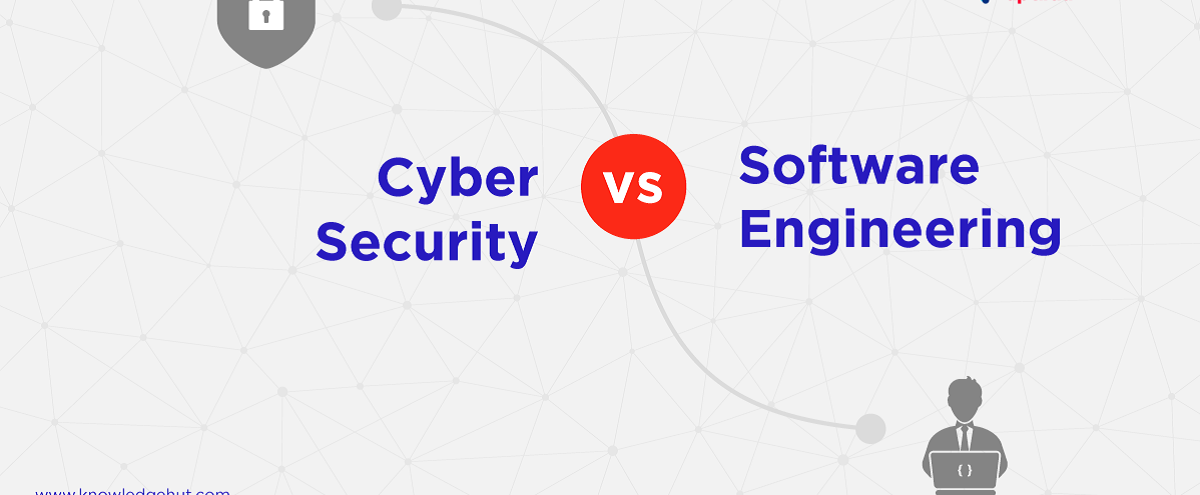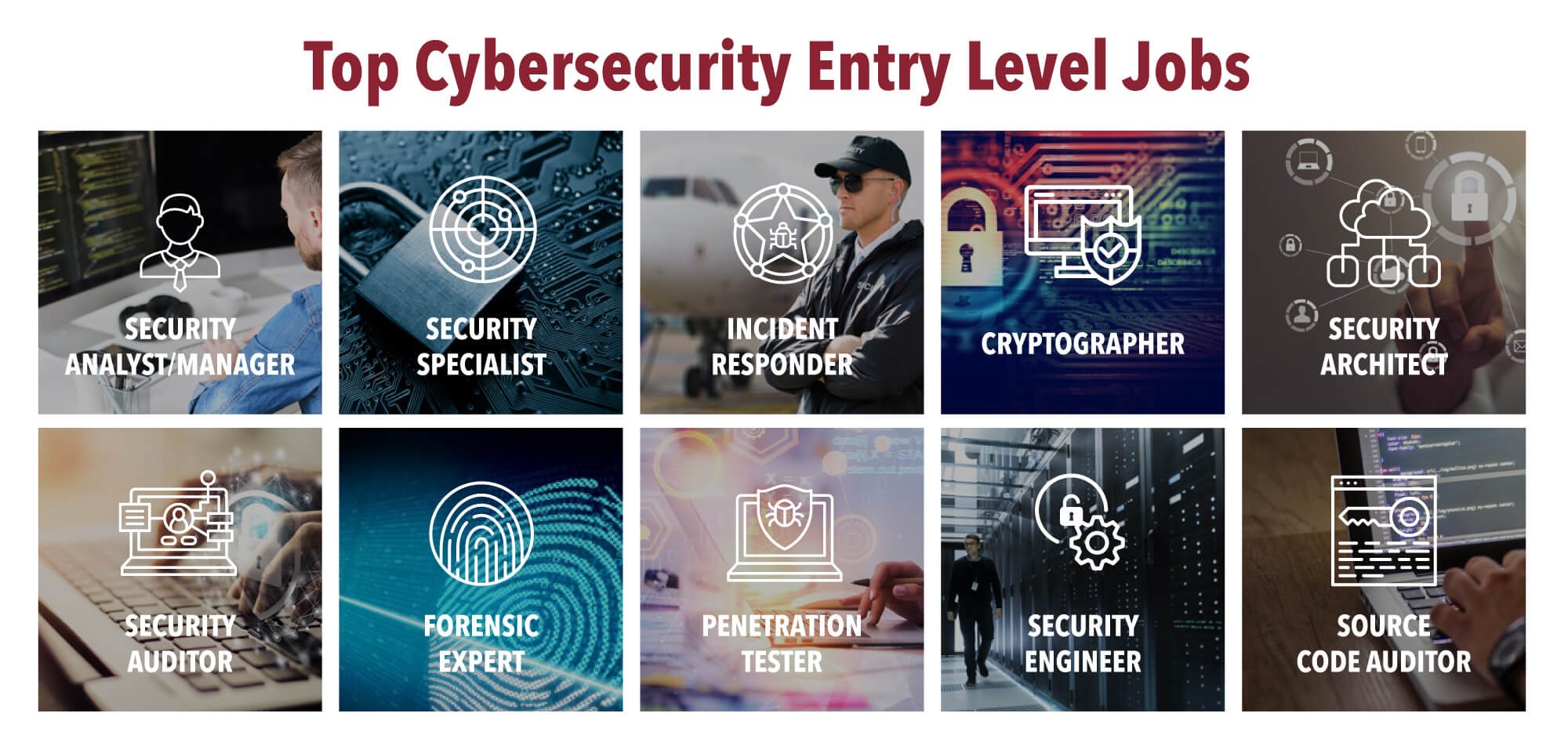Introduction
Welcome to the exciting world of cybersecurity! In today’s digital age, where technology is an integral part of our lives, the need for skilled professionals to protect our digital assets has never been more crucial. Cybersecurity is a fast-growing field that offers numerous opportunities for those interested in protecting organizations from cyber threats.
As technology evolves, so do the threats that accompany it. With cybercrimes on the rise, businesses and individuals are increasingly vulnerable to data breaches, malware attacks, and other forms of cyber attacks. This has created a high demand for cybersecurity professionals who can develop strategies, implement measures, and manage security systems to mitigate risks.
Starting a career in cybersecurity requires a passion for technology, a strong analytical mindset, and a continuous thirst for knowledge. This field offers a wide range of roles, including cybersecurity analyst, ethical hacker, security consultant, and more. Whether you are a recent graduate or someone looking to switch careers, this article will guide you on how to embark on a successful cybersecurity journey.
In the following sections, we will explore the essential steps you need to take to build a strong foundation in cybersecurity, gain relevant knowledge and skills, obtain certifications, gain real-world experience, network with professionals in the industry, and develop a specialization. Additionally, we will provide valuable tips and strategies to help you navigate the job search process and excel in your cybersecurity career.
So, if you are ready to embark on a challenging and rewarding journey in the world of cybersecurity, let’s dive into the details and equip you with the tools you need to start your cybersecurity career!
Understanding Cybersecurity
Cybersecurity is the practice of protecting electronic systems, networks, and data from unauthorized access, theft, and damage. It encompasses various techniques, tools, and practices that ensure the confidentiality, integrity, and availability of digital information. In today’s interconnected world, where data is constantly being transmitted and stored, cybersecurity plays a critical role in safeguarding sensitive information from hackers, cybercriminals, and other malicious actors.
One of the fundamental aspects of cybersecurity is risk management. It involves identifying potential vulnerabilities and threats, assessing their potential impact, and implementing measures to mitigate those risks. By conducting risk assessments and developing risk management strategies, organizations can proactively protect their digital assets.
Cybersecurity also involves the implementation of security controls and protocols to prevent unauthorized access to sensitive information. This includes utilizing firewalls, encryption techniques, multi-factor authentication, and intrusion detection systems to establish barriers against cyber threats. Regular monitoring and analysis of system logs and network traffic are essential for identifying and responding to suspicious activities in real-time.
Another crucial element of cybersecurity is incident response and disaster recovery. Despite the best security measures, incidents can still occur, making it essential to have a well-defined plan in place to handle breaches, recover compromised data, and restore systems to normal operation. A robust incident response plan can significantly minimize the damage caused by cyber attacks and ensure business continuity.
Furthermore, cybersecurity professionals need to stay updated with the latest trends and developments in the field. Cyber threats are constantly evolving, and new vulnerabilities are discovered regularly. By actively participating in industry forums, attending conferences, and continuously learning and honing their skills, cybersecurity practitioners can stay ahead of the curve and effectively address emerging threats.
Understanding the various aspects of cybersecurity is crucial for aspiring professionals in the field. It provides a solid foundation for building the necessary knowledge and skills required to protect organizations from cyber threats. In the following sections, we will explore the steps you need to take to establish a strong foundation and embark on a successful cybersecurity career.
Building a Strong Foundation
Building a strong foundation is crucial for starting a successful cybersecurity career. It involves acquiring the necessary knowledge, skills, and qualifications that form the basis of your cybersecurity expertise. Here are some essential steps to help you establish a solid foundation:
Educational Background: Pursuing a degree in a relevant field such as computer science, information technology, or cybersecurity can provide you with a strong foundation. A formal education equips you with a broad understanding of key concepts, principles, and theories in cybersecurity. Additionally, consider taking elective courses or specialized programs that focus specifically on cybersecurity to deepen your knowledge in this field.
Online Resources: The internet offers a wealth of resources in the form of blogs, tutorials, forums, and online courses that can help you learn the fundamentals of cybersecurity. Platforms like Coursera, Udemy, and edX offer a wide range of online courses and certifications in cybersecurity. Take advantage of these resources to gain practical knowledge and stay updated with the latest trends and technologies.
Industry Certifications: Obtaining industry-recognized certifications is highly recommended in the cybersecurity field. Certifications such as CompTIA Security+, Certified Ethical Hacker (CEH), and Certified Information Systems Security Professional (CISSP) validate your expertise and demonstrate your commitment to the field. These certifications enhance your credibility and increase your chances of securing sought-after cybersecurity roles.
Networking and Community Involvement: Networking with professionals in the cybersecurity industry can provide valuable insights and open doors to potential opportunities. Join cybersecurity communities, attend industry events, and participate in online forums and discussion groups. Engaging with others in the field can help you stay informed about the latest trends, receive guidance from experienced professionals, and even land mentorship opportunities.
Hands-on Experience: Building practical experience is vital for strengthening your cybersecurity foundation. Look for internship opportunities, volunteer for cybersecurity projects, or seek entry-level roles that allow you to apply your knowledge in a real-world setting. Practical experience not only enhances your skills but also demonstrates your ability to handle real-world cybersecurity challenges.
Continuous Learning: Cybersecurity is a constantly evolving field, and continuous learning is essential to stay up-to-date with the latest technologies, threats, and best practices. Engage in self-study, read industry publications, and enroll in advanced courses or workshops to expand your knowledge and expertise. Being proactive in your learning journey will make you a valuable asset in the cybersecurity industry.
By focusing on these foundational steps, you can establish a solid platform for your cybersecurity career. Remember, building a strong foundation is an ongoing process, and it lays the groundwork for your future growth and success in the field.
Gaining Knowledge and Skills
Building a successful career in cybersecurity requires a comprehensive understanding of the field and the acquisition of relevant knowledge and skills. Here are some key steps to help you gain the necessary expertise:
Study Core Concepts: Start by studying the core concepts of cybersecurity. This includes understanding different types of cyber threats, attack vectors, security frameworks, and encryption techniques. Familiarize yourself with concepts such as network security, application security, data protection, and security operations to gain a holistic understanding of the field.
Programming Languages: Developing proficiency in programming languages is highly beneficial in the cybersecurity field. Languages like Python, Java, C++, and PowerShell are commonly used in various cybersecurity tasks. Understanding programming basics, such as logic, algorithms, and scripting, will enable you to develop security tools, conduct vulnerability assessments, and automate security tasks.
Networking and Operating Systems: Having a good understanding of computer networks and operating systems is essential in cybersecurity. Learn about network protocols, architecture, and security protocols. Gain knowledge of different operating systems like Windows, Linux, and macOS, as they have different security settings and vulnerabilities that need to be protected.
Cryptographic Principles: Cryptography is a fundamental aspect of cybersecurity. Familiarize yourself with cryptographic algorithms, encryption methods, digital signatures, and key management protocols. Understanding these principles will enable you to protect information during transmission and storage and ensure the integrity and confidentiality of sensitive data.
Security Tools: Familiarize yourself with common cybersecurity tools and technologies. This includes antivirus software, intrusion detection systems, firewalls, vulnerability scanners, and penetration testing tools. Gain hands-on experience with these tools to understand their functionalities and how they contribute to securing digital assets.
Incident Response and Forensics: Incident response and digital forensics are critical skills in cybersecurity. Learn about incident response protocols, including how to detect, analyze, contain, and recover from security incidents. Understand the procedures for collecting, analyzing, and preserving digital evidence in case of cybercrime or security breaches.
Ethical Hacking: Ethical hacking, also known as penetration testing, involves identifying vulnerabilities in systems and networks to protect them from actual attacks. Gain knowledge about various hacking techniques and tools to understand how attackers exploit vulnerabilities. Pursuing certifications like Certified Ethical Hacker (CEH) can further validate your skills in this area.
Risk Management: Develop an understanding of risk management principles in cybersecurity. This includes risk assessment methodologies, risk mitigation strategies, and risk monitoring techniques. Learn how to prioritize risks, develop risk management plans, and implement controls to minimize potential threats.
Soft Skills: In addition to technical skills, developing strong soft skills is vital for cybersecurity professionals. Effective communication, problem-solving, critical thinking, and teamwork skills are essential for collaborating with stakeholders, understanding the needs of organizations, and proposing effective cybersecurity solutions.
By focusing on gaining knowledge and skills in these areas, you will be well-equipped to navigate the dynamic field of cybersecurity and contribute to protecting organizations from cyber threats.
Getting Certified
In the cybersecurity industry, certifications play a vital role in validating your skills, knowledge, and expertise. Getting certified demonstrates your commitment to the field and enhances your credibility among employers and peers. Here are some popular certifications to consider:
CompTIA Security+: Considered an entry-level certification, CompTIA Security+ covers fundamental concepts in cybersecurity, risk management, network security, and cryptography. It provides a solid foundation for beginners in the field.
Certified Ethical Hacker (CEH): The CEH certification focuses on ethical hacking techniques and tools. It equips professionals with the knowledge and skills to identify vulnerabilities in systems, networks, and applications, allowing organizations to strengthen their security defenses.
Certified Information Systems Security Professional (CISSP): This advanced-level certification demonstrates comprehensive knowledge and expertise across various domains of cybersecurity, including risk management, security operations, cloud security, and more. CISSP is widely recognized and highly sought after by employers.
GIAC Certifications: The Global Information Assurance Certification (GIAC) offers a range of specialized certifications in areas such as incident response, penetration testing, digital forensics, and industrial control systems security. These certifications are highly regarded for their focus on hands-on technical skills.
Certified Information Security Manager (CISM): CISM certification is designed for professionals involved in managing and overseeing an organization’s information security program. It covers governance, risk management, incident management, and strategic planning.
Certified Information Privacy Professional (CIPP): With the increasing focus on data protection and privacy, the CIPP certification demonstrates knowledge and expertise in privacy policies, regulations, and best practices.
Vendor-Specific Certifications: Many technology vendors offer specialized certifications for their products and services. For example, Cisco offers the Cisco Certified Network Associate (CCNA) Security certification, focusing on network security, while Microsoft offers the Microsoft Certified: Azure Security Engineer Associate certification for professionals working with Azure cloud security.
Continuous Professional Development: Apart from the specific certifications, it’s important to engage in continuous professional development. Attend industry conferences, participate in webinars, and enroll in courses to stay updated with the latest advancements and emerging threats in cybersecurity.
Obtaining certifications not only enhances your knowledge and skills but also demonstrates your commitment to professional growth. It sets you apart from other candidates in the job market and opens doors to diverse career opportunities in cybersecurity.
Gaining Real-World Experience
While acquiring knowledge and certifications are essential in cybersecurity, gaining real-world experience is equally important for building a successful career in the field. Real-world experience provides you with practical skills, exposure to different cybersecurity scenarios, and the opportunity to apply your knowledge in a professional setting. Here are some ways to gain valuable real-world experience:
Internships and Entry-Level Positions: Seek out internship opportunities or entry-level positions in cybersecurity. Many organizations offer internship programs specifically designed for individuals looking to gain hands-on experience. These opportunities allow you to work alongside experienced professionals, participate in real projects, and apply your skills in a practical setting.
Volunteer Work: Consider volunteering your skills for organizations that may not have the resources to hire dedicated cybersecurity professionals. Non-profit organizations, community groups, or small businesses can benefit from your expertise while providing you with valuable experience.
Security Operations Centers (SOCs): Join a security operations center to gain experience in monitoring and responding to security incidents. SOC environments expose you to real-time cyber threats, incident response procedures, and the use of security tools and technologies.
Cyber Capture the Flag (CTF) Competitions: Participating in CTF competitions is an excellent way to test your skills, learn new techniques, and gain hands-on experience in a simulated environment. CTF competitions often involve solving cybersecurity challenges and vulnerabilities, enhancing your ability to think critically and strategically.
Open-Source Projects: Contribute to open-source cybersecurity projects to gain practical experience and collaborate with professionals in the industry. By working on real-world projects, you can gain insights into practical challenges, enhance your problem-solving skills, and build a portfolio of your work.
Mentorship and Shadowing: Seek out experienced professionals in the cybersecurity field who are willing to mentor you or allow you to shadow them. Observing their work, asking questions, and learning from their experiences can be invaluable in understanding how cybersecurity practices are applied in real-world situations.
Continued Learning and Professional Growth: Real-world experience is an ongoing process. Stay updated with the latest trends, technologies, and threats in cybersecurity. Engage in continuous learning, attend conferences, participate in webinars, and join professional organizations to expand your knowledge and stay relevant in the field.
Gaining real-world experience helps you develop practical skills, build a network of professionals, and make you more marketable to potential employers. It demonstrates your ability to handle real-world challenges and provides you with the confidence and expertise needed to excel in your cybersecurity career.
Networking and Collaboration
In the cybersecurity field, networking and collaboration are essential for professional growth and career advancement. Building connections with other professionals, sharing knowledge, and collaborating on projects can open doors to new opportunities and provide valuable insights. Here are some ways to effectively network and collaborate in the cybersecurity industry:
Join Professional Organizations: Become a member of cybersecurity professional organizations such as the International Information Systems Security Certification Consortium (ISC)², ISACA, or the Information Systems Security Association (ISSA). These organizations provide networking events, conferences, and forums where you can connect with industry experts and fellow professionals.
Attend Conferences and Events: Participate in cybersecurity conferences, workshops, and events both locally and internationally. These events offer networking opportunities, panel discussions, and presentations by industry leaders. Engaging in conversations, mingling with professionals, and exchanging ideas can lead to valuable connections.
Online Networking Communities: Engage in online communities such as cybersecurity forums, LinkedIn groups, and social media platforms dedicated to cybersecurity professionals. Active participation allows you to connect with individuals from various backgrounds and share knowledge and insights.
Mentorship and Mentoring Programs: Seek guidance from experienced professionals in the cybersecurity field. A mentor can provide valuable advice, share their experiences, and introduce you to their professional network. Some organizations offer mentoring programs that match experienced professionals with beginners in the field.
Collaborative Projects: Collaborate with other professionals on cybersecurity projects or initiatives. This could involve participating in open-source projects, joining hackathons, or even working together on research papers or publications. Collaborative efforts enhance your knowledge and skills while establishing valuable connections in the industry.
Information Sharing and Knowledge Transfer: Engage in conversations and discussions related to cybersecurity topics. Share your knowledge and insights with others, and be open to learning from their experiences. Cybersecurity is a constantly evolving field, and staying updated with the latest trends and threats is crucial.
Mentoring Others: Once you have gained experience and knowledge in the cybersecurity field, consider becoming a mentor for aspiring cybersecurity professionals. Sharing your expertise and guiding others not only gives back to the community but also helps solidify your own knowledge and deepen your understanding of the field.
Building a Personal Brand: Establishing a strong personal brand can make you stand out in the cybersecurity industry. Share your thoughts and expertise through blogging, public speaking, or contributing articles to industry publications. This can help raise your profile and attract opportunities for collaboration and networking.
Remember, networking and collaboration are ongoing processes. Actively seek out opportunities to connect with professionals in the field, share your knowledge, and participate in collaborative efforts. By building a strong network and fostering meaningful professional relationships, you can enhance your cybersecurity career and stay at the forefront of industry developments.
Developing a Specialization
In the expansive field of cybersecurity, developing a specialization can enhance your career prospects and set you apart as an expert in a specific area. Specializing allows you to dive deeper into a particular domain of cybersecurity and become highly skilled in addressing specific challenges. Here are some steps to develop a specialization:
Identify Your Interests: Determine which areas of cybersecurity interest you the most. It could be application security, network security, incident response, cloud security, digital forensics, or any other specialized area. Reflect on your strengths, passion, and long-term career goals to help you pinpoint your preferred specialization.
Research and Study: Once you have identified your area of interest, dive into research and study. Read books, academic papers, and case studies specific to your chosen specialization. Stay updated with the latest trends, emerging technologies, and evolving threats in that particular domain.
Take Specialized Courses or Training: Look for specialized courses or training programs that focus on your chosen area of specialization. These courses can provide in-depth knowledge, hands-on experience, and guidance from subject matter experts. Platforms like Coursera, Udemy, and SANS Institute offer various specialized courses and training programs in cybersecurity.
Obtain Relevant Certifications: Certifications can validate your specialized knowledge and skills. Research certifications that align with your chosen specialization and pursue them. For example, if you are interested in cloud security, certifications like the Certified Cloud Security Professional (CCSP) or the AWS Certified Security – Specialty can be valuable.
Gain Hands-On Experience: Practical experience is crucial for developing a specialization. Seek opportunities to work on projects or real-world scenarios related to your chosen area of expertise. This can be through internships, volunteering, or joining specialized teams within organizations. Hands-on experience will solidify your knowledge and provide you with valuable insights.
Contribute to the Community: Share your knowledge and expertise with the cybersecurity community. Write blog posts, present at conferences, contribute to open-source projects, or participate in industry forums. By actively engaging with others in your specialization, you can expand your network and deepen your understanding of the field.
Continuous Learning: Developing a specialization doesn’t end with acquiring knowledge and certifications. Stay updated with the latest advancements, research, and best practices in your specialized area. Engage in continuous learning by attending webinars, reading industry publications, and participating in professional development programs.
Consider Advanced Degrees: Pursuing an advanced degree, such as a Master’s or Ph.D., in a specialized area of cybersecurity can further enhance your expertise and open doors to advanced positions and research opportunities. Advanced degrees provide in-depth knowledge and can establish you as a thought leader in your specialization.
Developing a specialization in cybersecurity demonstrates your expertise and commitment to a specific area. It allows you to become a sought-after professional in the industry and positions you for advanced roles and leadership positions. Choose your specialization carefully, invest time in gaining specialized knowledge and skills, and actively contribute to the field to establish yourself as a recognized specialist.
Job Search Strategies
When embarking on a job search in the cybersecurity field, it’s important to have a well-defined strategy that maximizes your chances of finding the right opportunity. Here are some effective job search strategies to consider:
Refine Your Resume: Tailor your resume to highlight your skills, experiences, and certifications relevant to the cybersecurity field. Emphasize any hands-on experience, specialized training, or projects you have completed. Consider including keywords related to the specific job you are applying for to optimize your resume for applicant tracking systems (ATS).
Expand Your Network: Leverage your professional network to explore job opportunities. Reach out to former colleagues, mentors, or other professionals in the cybersecurity industry who may have leads or insights into job openings. Attend industry events, join online communities, and participate in networking activities to expand your connections.
Utilize Job Boards and Company Websites: Regularly search for cybersecurity job postings on popular job boards and company websites. Create job alerts for relevant keywords and set notifications to receive updates on new job opportunities. Focus on reputable job boards and company websites known for posting cybersecurity roles.
Engage with Recruiters: Build relationships with cybersecurity recruiters. Recruiters often have insight into unadvertised job openings and can help match your skills and experience with suitable positions. Attend job fairs, career events, or virtual meetings where you can connect directly with recruiters.
Utilize LinkedIn: LinkedIn is a powerful tool for job seekers in the cybersecurity field. Optimize your LinkedIn profile to highlight your cybersecurity skills, certifications, and professional experiences. Actively engage with industry professionals, join cybersecurity groups, and follow companies of interest. Networking on LinkedIn can lead to job opportunities and connections with hiring managers.
Prepare for Technical Interviews: In the cybersecurity field, technical interviews are common to assess your knowledge and problem-solving abilities. Research commonly asked technical interview questions and review cybersecurity concepts, frameworks, and tools. Be prepared to demonstrate your skills through practical exercises or simulations.
Showcase Your Portfolio: Build a portfolio to showcase your work, such as projects, research papers, or successful cybersecurity initiatives you have undertaken. This can serve as tangible evidence of your expertise and provide a talking point during job interviews.
Continued Learning and Professional Development: Demonstrate your commitment to continuous learning and professional growth by pursuing new certifications, participating in relevant training programs, or engaging in self-study. This not only enhances your skills but also shows potential employers that you are proactive and dedicated to staying current in the field.
Prepare for Behavioral Interviews: In addition to technical interviews, be prepared for behavioral interviews that assess your problem-solving, communication, and teamwork skills. Prepare answers that highlight specific incidents where you demonstrated relevant skills in past experiences.
Follow Up and Stay Persistent: After submitting applications or attending interviews, follow up with hiring managers or recruiters to express your continued interest in the position. Send a personalized thank-you note or email and inquire about the timeline for a decision. Staying persistent and engaged can help you stand out from other candidates.
By implementing these job search strategies, you can increase your visibility, build valuable connections, and find the right job opportunity in the cybersecurity field. Be proactive, adaptable, and persistent throughout your job search journey.
Tips for a Successful Cybersecurity Career
A successful cybersecurity career requires a combination of technical expertise, continuous learning, and professional development. Here are some tips to help you thrive in the field:
Stay Updated: Cybersecurity is an ever-evolving field, so it’s crucial to stay updated with the latest trends, technologies, and threats. Engage in continuous learning by attending conferences, webinars, and workshops. Subscribe to reputable cybersecurity publications and follow influential professionals on social media to keep up with industry developments.
Develop Strong Technical Skills: Continuously improve your technical skills by understanding various operating systems, programming languages, networking protocols, and security tools. Specialize in areas such as ethical hacking, cloud security, or digital forensics to differentiate yourself in the job market.
Think Like an Attacker: To effectively defend against cyber threats, it’s important to think like an attacker. Adopt a hacker’s mindset and develop the ability to identify vulnerabilities and anticipate potential attack vectors. This will enable you to better protect systems, networks, and data.
Cultivate Soft Skills: In addition to technical skills, soft skills like communication, problem-solving, and teamwork are crucial in a cybersecurity career. Develop your ability to effectively communicate complex concepts, collaborate with diverse teams, and approach problem-solving with creativity and critical thinking.
Seek Mentorship: Find experienced professionals in the cybersecurity field who can guide and mentor you. Their insights and advice can accelerate your career growth and help you navigate complex challenges. Look for mentors both within your organization and through professional networks.
Build a Professional Network: Networking is essential for career advancement. Attend industry events, join cybersecurity organizations, participate in online forums, and engage in discussions with peers and experts. Building a strong professional network can lead to job opportunities, collaboration, and mentorship.
Embrace Continuous Learning: The field of cybersecurity is constantly evolving, so it’s important to embrace a mindset of continuous learning. Pursue advanced certifications, take part in training programs, and seek opportunities to gain practical experience. Consistently upgrading your skills will make you an asset in the industry.
Stay Ethical and Adhere to Legal Guidelines: Ethics and legal compliance are paramount in cybersecurity. Always conduct yourself ethically, respect privacy laws, and gain appropriate permissions before performing any security assessments or tests. Upholding professional ethics and standards will showcase your integrity and professionalism.
Be Proactive in Personal Security: Practice what you preach by maintaining good personal security habits. Regularly update your passwords, enable multi-factor authentication, and be mindful of phishing attempts and suspicious links. Adhering to personal security measures demonstrates your commitment to cybersecurity.
Stay Resilient and Adaptable: Cybersecurity can be a challenging field, with new threats and technologies emerging regularly. Develop resilience to handle setbacks, adapt quickly to changes, and learn from failures. Being adaptable and agile in the face of evolving challenges will help you succeed in your cybersecurity career.
By following these tips, you can set yourself up for a successful cybersecurity career. Remember to stay curious, keep pushing yourself to learn and grow, and always prioritize ethics and professionalism. With dedication and a passion for the field, you can thrive and make a meaningful impact in the realm of cybersecurity.

























